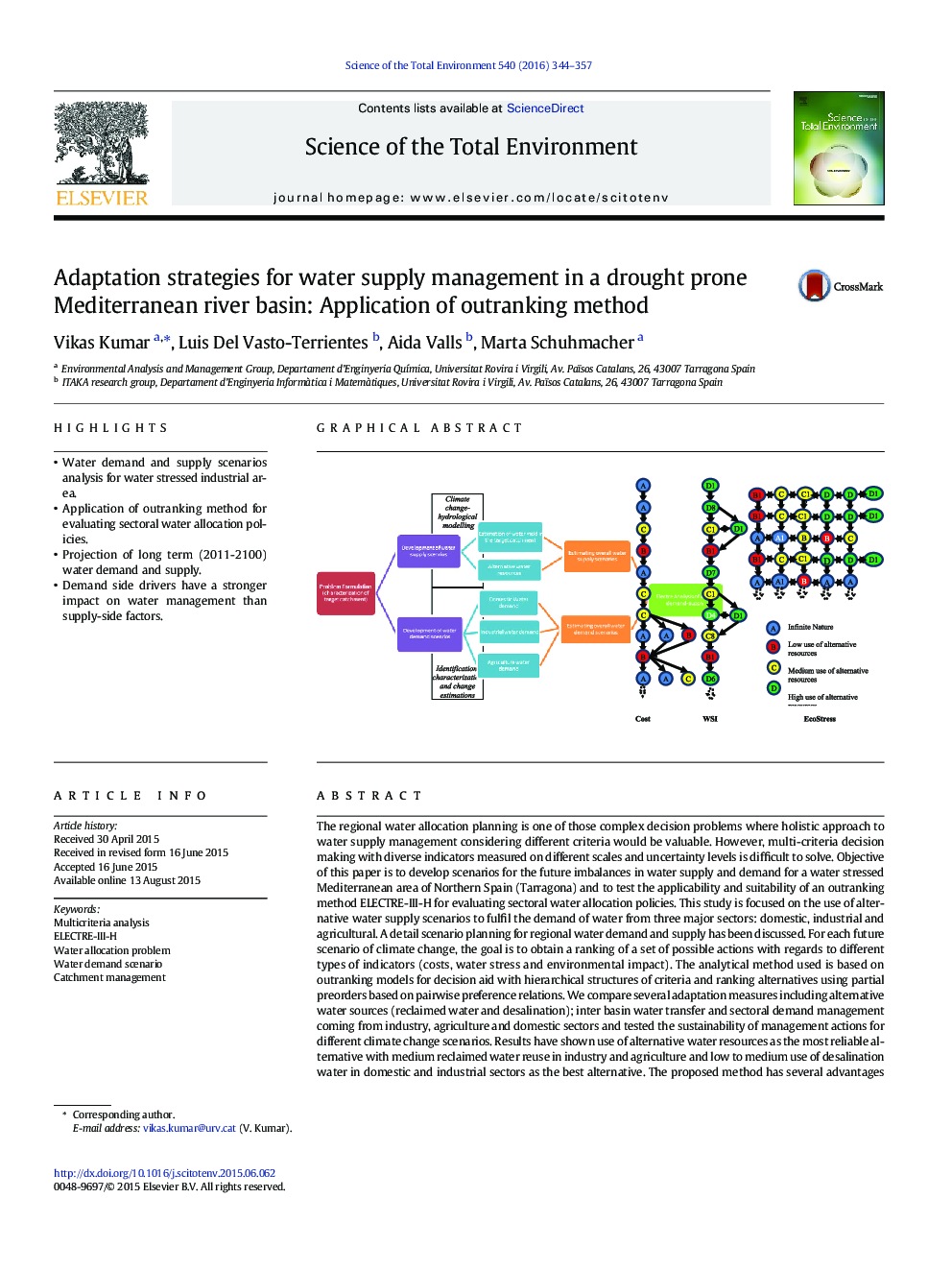| Article ID | Journal | Published Year | Pages | File Type |
|---|---|---|---|---|
| 6324672 | Science of The Total Environment | 2016 | 14 Pages |
â¢Water demand and supply scenarios analysis for water stressed industrial area.â¢Application of outranking method for evaluating sectoral water allocation policies.â¢Projection of long term (2011-2100) water demand and supply.â¢Demand side drivers have a stronger impact on water management than supply-side factors.
The regional water allocation planning is one of those complex decision problems where holistic approach to water supply management considering different criteria would be valuable. However, multi-criteria decision making with diverse indicators measured on different scales and uncertainty levels is difficult to solve. Objective of this paper is to develop scenarios for the future imbalances in water supply and demand for a water stressed Mediterranean area of Northern Spain (Tarragona) and to test the applicability and suitability of an outranking method ELECTRE-III-H for evaluating sectoral water allocation policies. This study is focused on the use of alternative water supply scenarios to fulfil the demand of water from three major sectors: domestic, industrial and agricultural. A detail scenario planning for regional water demand and supply has been discussed. For each future scenario of climate change, the goal is to obtain a ranking of a set of possible actions with regards to different types of indicators (costs, water stress and environmental impact). The analytical method used is based on outranking models for decision aid with hierarchical structures of criteria and ranking alternatives using partial preorders based on pairwise preference relations. We compare several adaptation measures including alternative water sources (reclaimed water and desalination); inter basin water transfer and sectoral demand management coming from industry, agriculture and domestic sectors and tested the sustainability of management actions for different climate change scenarios. Results have shown use of alternative water resources as the most reliable alternative with medium reclaimed water reuse in industry and agriculture and low to medium use of desalination water in domestic and industrial sectors as the best alternative. The proposed method has several advantages such as the management of heterogeneous scales of measurement without requiring any artificial transformation and the management of uncertainty by means of comparisons at a qualitative level in terms of the decision maker preferences.
Graphical abstractDownload full-size image
